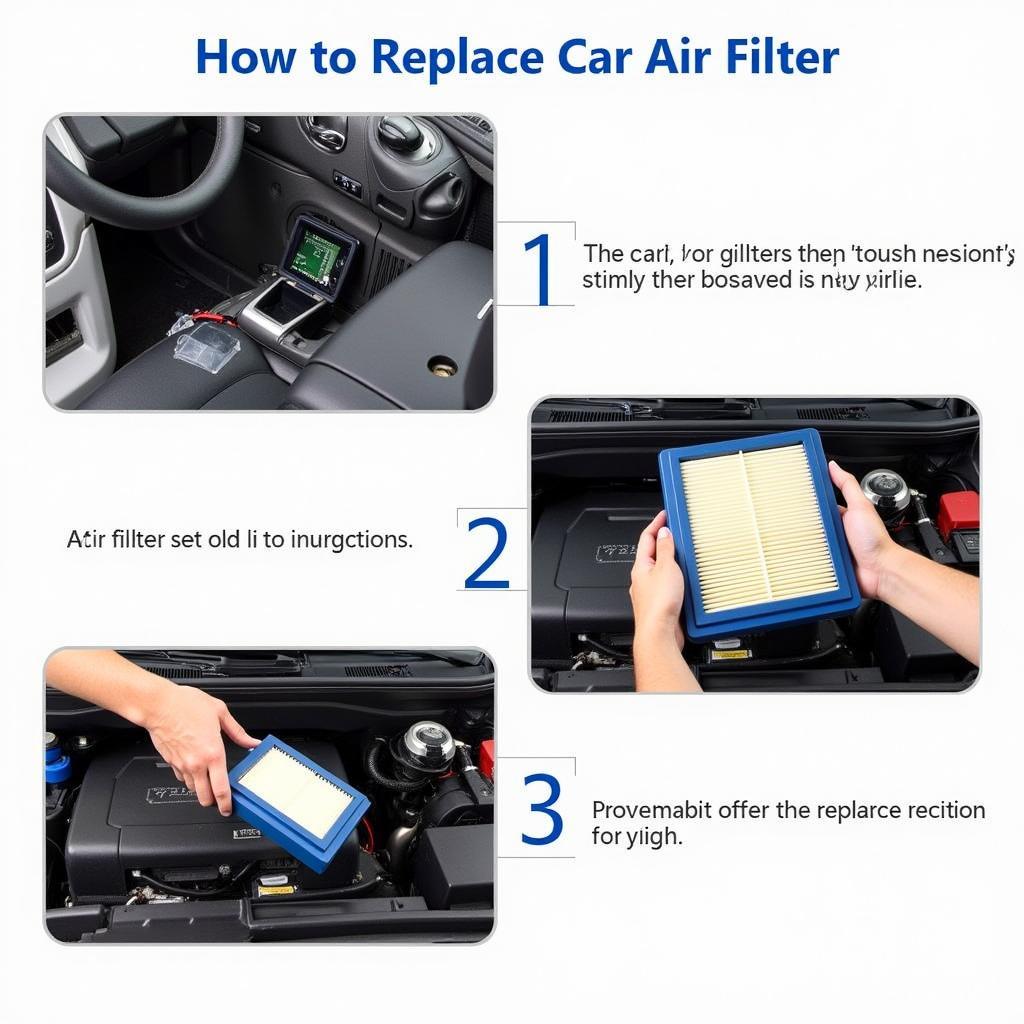Keeping your car in top shape doesn’t have to be a mystery. Whether you’re a seasoned mechanic or a new car owner, understanding the most important maintenance tasks is key to a safe and smooth ride. This guide covers everything you need to know about keeping your car running smoothly for years to come.
Let’s dive into the essential car maintenance tasks that every owner should know.
Essential Car Maintenance Every Owner Should Know
Just like our bodies need regular check-ups, our cars thrive on routine maintenance. Neglecting these can lead to costly repairs down the line. Here’s a breakdown of the essentials:
1. Regular Oil and Filter Changes
Think of oil as your car’s lifeblood. It lubricates engine parts, reducing friction and preventing overheating. Over time, oil degrades and loses its effectiveness.
How often? Consult your owner’s manual, but generally, every 3,000 miles (conventional oil) or 5,000-7,500 miles (synthetic oil) is a good rule of thumb.
2. Tire Care and Maintenance
Your tires are your only point of contact with the road. Proper tire care ensures optimal grip, fuel efficiency, and safety.
- Check Tire Pressure Regularly: Under-inflated tires wear out faster and hurt fuel economy. Over-inflated tires increase the risk of blowouts. Aim for the recommended PSI (pounds per square inch) found in your owner’s manual or on a sticker inside the driver’s side door jamb.
- Rotate Tires: Tires wear unevenly. Rotating them ensures even wear and extends their lifespan. Aim for rotation every 5,000-7,500 miles.
- Inspect Tire Tread: Worn-out tread significantly reduces traction, especially in wet conditions. Use a tread depth gauge or the penny test to check for adequate tread depth.
3. Brake System Inspection
Your brakes are arguably the most crucial safety feature in your car.
- Listen for Noises: Screeching, grinding, or squeaking when braking are signs of potential problems.
- Feel for Vibrations: Pulsating or vibrating brakes might indicate warped rotors.
- Check Brake Fluid: Low brake fluid can lead to brake failure.
How often? Have your brake system inspected at least once a year or if you notice any of the above signs.
4. Fluid Checks and Top-offs
Just like oil, various fluids keep your car running smoothly.
- Coolant: Prevents engine overheating.
- Transmission Fluid: Ensures smooth gear shifting.
- Power Steering Fluid: Makes steering effortless.
- Windshield Washer Fluid: Keeps your windshield clear.
How often? Check these fluids regularly, and top them off as needed.
5. Battery Maintenance
A dead battery is a common culprit for unexpected breakdowns.
- Inspect Battery Terminals: Look for corrosion (a white, powdery substance) and clean it with a baking soda and water solution.
- Check Battery Charge: If your car struggles to start, it might be time for a new battery.
How often? Most car batteries last 3-5 years.
6. Air Filter Replacement
Your engine needs to “breathe” clean air for optimal performance. A dirty air filter restricts airflow, reducing engine power and fuel efficiency.
How often? Replace the air filter every 12,000 miles or as recommended in your owner’s manual.
 Replacing a Car Air Filter
Replacing a Car Air Filter
7. Spark Plug Replacement
Spark plugs ignite the fuel-air mixture in the engine cylinders. Worn-out spark plugs can cause misfires, reducing engine power and fuel economy.
How often? Check your owner’s manual, but most spark plugs need replacement every 30,000 miles or so.
8. Belts and Hoses Inspection
Belts and hoses play a vital role in engine operation.
- Serpentine Belt: Drives various engine components, including the alternator, power steering pump, and water pump.
- Timing Belt: Controls the timing of engine valves.
How often? Inspect belts for cracks, fraying, or glazing. Squeeze hoses to check for brittleness or leaks.
Why Regular Maintenance on Cars is Crucial
“Regular car maintenance is like investing in your car’s future,” says John Smith, a senior mechanic at Autotippro. “It not only prevents costly repairs down the line but also ensures your safety and the longevity of your vehicle.”
Here’s why you should prioritize maintenance:
- Safety First: A well-maintained car is a safer car.
- Prevents Costly Repairs: Addressing minor issues early can save you from major expenses later.
- Improves Fuel Efficiency: A well-tuned engine runs more efficiently, saving you money on gas.
- Extends Vehicle Lifespan: Regular maintenance keeps your car running smoothly for years to come.
- Maintains Resale Value: A well-maintained car commands a higher resale value.
Conclusion
Sticking to a regular maintenance schedule is the most effective way to keep your car running smoothly for years to come. By understanding and addressing these key maintenance tasks, you’ll not only save money but also enjoy peace of mind knowing your vehicle is safe and reliable.
Need help with car maintenance or repairs? Contact the experts at AutoTipPro at +1 (641) 206-8880. Our team of skilled mechanics is dedicated to providing top-notch service and keeping your car in top condition. Visit our office at 500 N St Mary’s St, San Antonio, TX 78205, United States. We are here to help you get the most out of your vehicle.







Leave a Reply